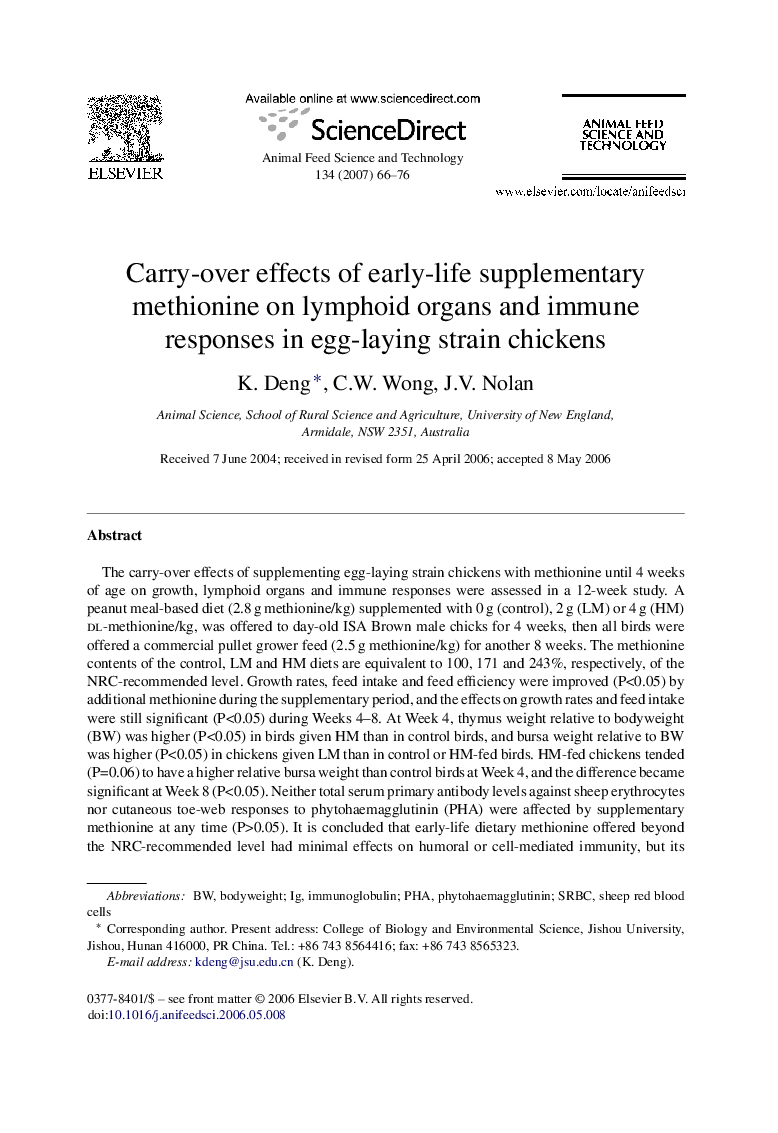| Article ID | Journal | Published Year | Pages | File Type |
|---|---|---|---|---|
| 2420977 | Animal Feed Science and Technology | 2007 | 11 Pages |
The carry-over effects of supplementing egg-laying strain chickens with methionine until 4 weeks of age on growth, lymphoid organs and immune responses were assessed in a 12-week study. A peanut meal-based diet (2.8 g methionine/kg) supplemented with 0 g (control), 2 g (LM) or 4 g (HM) dl-methionine/kg, was offered to day-old ISA Brown male chicks for 4 weeks, then all birds were offered a commercial pullet grower feed (2.5 g methionine/kg) for another 8 weeks. The methionine contents of the control, LM and HM diets are equivalent to 100, 171 and 243%, respectively, of the NRC-recommended level. Growth rates, feed intake and feed efficiency were improved (P<0.05) by additional methionine during the supplementary period, and the effects on growth rates and feed intake were still significant (P<0.05) during Weeks 4–8. At Week 4, thymus weight relative to bodyweight (BW) was higher (P<0.05) in birds given HM than in control birds, and bursa weight relative to BW was higher (P<0.05) in chickens given LM than in control or HM-fed birds. HM-fed chickens tended (P=0.06) to have a higher relative bursa weight than control birds at Week 4, and the difference became significant at Week 8 (P<0.05). Neither total serum primary antibody levels against sheep erythrocytes nor cutaneous toe-web responses to phytohaemagglutinin (PHA) were affected by supplementary methionine at any time (P>0.05). It is concluded that early-life dietary methionine offered beyond the NRC-recommended level had minimal effects on humoral or cell-mediated immunity, but its stimulatory effects on growth rates and feed intake, and development of the bursa persisted for a short period into a later stage of the chicken's life.
